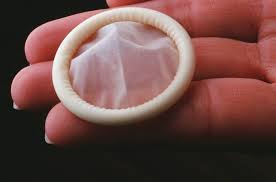What are sexually transmitted infections?
Some infections can pass to another person through unprotected vaginal, anal or oral sex, by genital contact and through sharing of sex toys. Infections that spread in this way are known as sexually transmitted infections (STIs) or sexually transmitted diseases (STDs).
What causes sexually transmitted infections (STIs)?
More than 30 different bacteria, viruses, and parasites can cause STIs. Bacterial STIs include chlamydia, gonorrhoea, and syphilis among others. Viral STIs include genital herpes, HIV/AIDS, and genital warts among others. Parasitic STIs include trichomoniasis among others. While usually spread by sex, some STIs can also be spread by non-sexual contact with contaminated blood and tissues.
How do you get STIs?
STIs are spread in the following ways:
• Having unprotected (without a condom) vaginal, oral, or anal sex with someone who has an STI. It can be difficult to tell if someone has an STI. STIs can be spread even if there are no signs or symptoms.
• During genital touching. It is possible to get some STIs, such as syphilis and herpes, without having sex.
• Through sexual contact between women who have sex only with other women.
What Are Some Signs And Symptoms Of STIs?
Symptoms and signs may include vaginal discharge, penile discharge, ulcers on or around the genitals, and pelvic pain. Other signs and symptoms include the following:
• Sores or blisters on the genitals on or around the anus, or mouth
• Irregular growths (warts) in genital area
• Genital itching
• Pain with urination or having a bowel movement
• Pain with intercourse
• Vaginal bleeding or spotting after sexual intercourse
• Pain or swelling of glands in groin area
• Rash
If you suspect you have these or other STIs or that you may have been exposed to one, see your doctor for testing. Timely diagnosis and treatment are important to avoid or delay more-severe, potentially life-threatening health problems and to avoid infecting others.
How can I prevent an STI?
The most effective way of preventing STIs is by not having sex – vaginal, oral, or anal. If you do have sex, lower your risk of getting an STI with the following steps:
• Get vaccinated. There are vaccines to protect against HPV and hepatitis B.
• Use condoms. Condoms are the best way to prevent STIs when you have sex.
• Get tested. Be sure you and your partner are tested for STIs.
• Be monogamous. Having sex with just one partner can lower your risk for STIs. After being tested for STIs, be faithful to each other. Your risk of getting STIs goes up with the number of partners you have.
• Do not douche. Douching removes some of the normal bacteria in the vagina that protects you from infection. This may increase your risk of getting STIs.
• Do not abuse alcohol or drugs. Drinking too much alcohol or using drugs increases risky behaviour and may put you at risk of sexual assault and possible exposure to STIs.
• Circumcision in males may be effective to prevent some infections.
The steps work best when used together. No single step can protect you from every single type of STI.
How are STIs treated?
Most sexually transmitted infections can be treated and it is usually best if treatment is started as soon as possible. Of the most common infections, syphilis, gonorrhoea, chlamydia, trichomoniasis are curable, while herpes, hepatitis B, HIV/AIDS, and HPV are treatable but not curable. Some infections, such as HIV, genital warts and genital herpes, never leave the body but there are drugs available that can reduce the symptoms. If left untreated, many sexually transmitted infections can be painful or uncomfortable, and can permanently damage your health and fertility, and can be passed on to someone else.
Source: Guardian Newspaper




